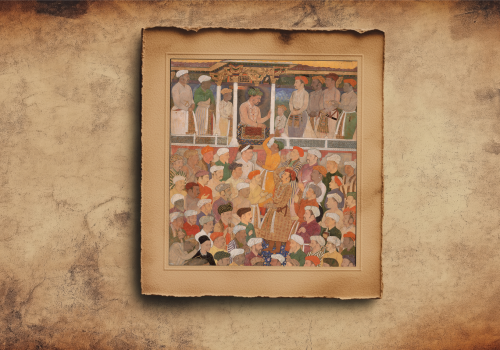TUZUKIJAHANGlRI is one of the several titles under which autobiographical writing of the Mughal Emperor, Jahangir (160527), is available, the common and generally accepted ones being TuzukiJahangin, Waqi`atiJahangm, and Jahangir Namah. The TuzukiJahangni based on the edited text of Sir Sayyid Alimad Khan of `Aligarh is embodied in two volumes translated by Alexander Rogers, revised, collated and corrected by Henry Beveridge with the help of several manuscripts from the India Office Library, British Library, Royal Asiatic Society and other sources. The first volume covers the first twelve years, while the second deals with the thirteenth to the nineteenth year of the reign. The material pertaining to the first twelve of the twentytwo regnal years, written by the Emperor in his own han
GRANTHI, from the Sanskrit granthika (a relaier or narrator), is a person who reads the granih, Sanskrit grantha (composition, treatise, book, text). The terms are derived from the Sanskrit grath which means "to fasten, tie or string together, to compose (a literary work)." In Sikh usage, granih refers especially to the Guru Granth Sahib, the Scripture, and the term granihl is used for the officiant whose main duty it is to read the Holy Book in public. The granth`i`s, the principal religious official of Sikhism, but should not be thought of as a "priest" in the usual sense.
LAL SINGH, RAJA (d. 1866), son of Misr Jassa Mall, a Brahman shopkeeper of Sanghoi, in Jehlum district in West Punjab, entered the service of the Sikh Darbar in 1832 as a writer in the treasury. He enjoyed the patronage of the Dogra minister Dhian Singh and, when in 1839 Misr Bell Ram had displeased the latter because of his sympathy with Chet Singh Bajva, he was promoted in his place Daroghah-i-Toshakhana, which position he held until the reinstatement of the former.
PARTAP SINGH, coming from the village of Sharikar in the district of Jalandhar, had won repute for his regularity of habit and strong sense of discipline. He had been a Viceroy commissioned officer (Jamadar) in the Punjab army. He had been able to spend his early years at school. He seemed well to understand the value of the three R`s and had sent up one of his sons to the university. That was Swaran Singh who received his Master`s degree in Physics at the University of the Punjab. He had a fabulous career as a minister in Jawaharlal Nehru`s government after Independence.
PARTAP SINGH, coming from the village of Sharikar in the district of Jalandhar, had won repute for his regularity of habit and strong sense of discipline. He had been a Viceroy commissioned officer (Jamadar) in the Punjab army. He had been able to spend his early years at school. He seemed well to understand the value of the three R`s and had sent up one of his sons to the university. That was Swaran Singh who received his Master`s degree in Physics at the University of the Punjab. He had a fabulous career as a minister in Jawaharlal Nehru`s government after Independence.
PARTAP SINGH, coming from the village of Sharikar in the district of Jalandhar, had won repute for his regularity of habit and strong sense of discipline. He had been a Viceroy commissioned officer (Jamadar) in the Punjab army. He had been able to spend his early years at school. He seemed well to understand the value of the three R`s and had sent up one of his sons to the university. That was Swaran Singh who received his Master`s degree in Physics at the University of the Punjab. He had a fabulous career as a minister in Jawaharlal Nehru`s government after Independence.
- 1
- 2


